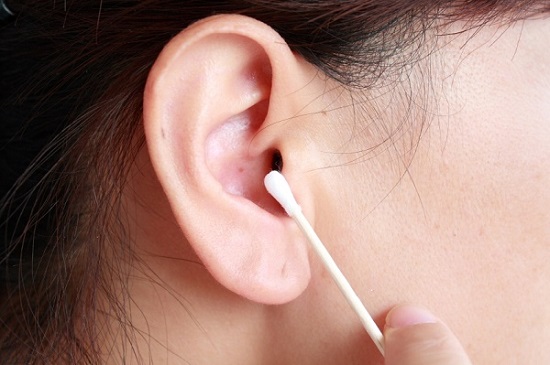
You’ve most likely never noticed, but on the back of any package of cotton swabs there’s a written warning that is some variation of this:
“Caution: Do not enter the ear canal with this product. Penetrating the ear canal could lead to injury.”
If you have a package of cotton swabs nearby, go take a look for yourself.
The truth is, it’s not just doctors, audiologists, and hearing professionals who advise against the use of cotton swabs to clean the ears—even the makers of cotton swabs think it’s a bad idea!
So why, if the use of cotton swabs is such a preferred method of ear cleaning, should it be avoided? Why are the producers so adamant that you don’t use their own product in this manner?
We’re excited you asked: here are four good reasons to never use cotton swabs to clean your ears again.
1. Earwax is useful
Earwax has quite a few useful functions apart from being gross. It has antibacterial qualities to reduce the risk of infections, it operates as an insect repellent to keep bugs out of your ears, and it helps to lubricate the ear canal, which helps prevent dry, itchy skin.
2. Cotton Swabs drive earwax up against the eardrum
Using cotton swabs can actually be dangerous. When you drive any foreign object into the ear canal, you’re moving most of the earwax up against the eardrum. This can rupture the eardrum or can cause an impaction that will result in hearing loss.
3. Earwax removes itself
The ear is specifically designed to remove its own earwax. The normal movements of your jaw—from talking, eating, or yawning—will push the earwax to the outer ear. All that’s required from you is normal showering and cleaning the external ear with a washcloth.
4. Excessive earwax removal causes dryness
Earwax has lubricating and antibacterial qualities, so if you eliminate too much, you’ll have a dry, itchy feeling and will be more predisposed to infections.
What you can do instead
There are several commercialized (and homemade) solutions you can use to flush out your ears, which is far safer than inserting foreign objects into the ear canal. But bear in mind, if you’re having problems with excessive earwax or you’re having trouble hearing, it’s usually best to consult with a hearing professional.
Hearing professionals are thoroughly educated in the structure and function of the ear, and can diagnose any ailments you may have with earwax buildup or hearing loss. It’s always a wise decision to rule out more significant problems, and if cleaning is all that’s needed, you’ll get the assurance of knowing that it’s being done the right way.
